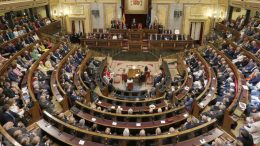Air Traffic Rebounds In Spain By 66% Driven by the Balearic Islands
Bankinter | Spain recorded almost 6,000 flights in a week in which operations resumed, up 66.6% compared to the previous week (3,523 landings and takeoffs). Air traffic has shot up in destinations like Palma with a 177.6% rise, while others like Madrid have seen an increase of 32% in operations.










